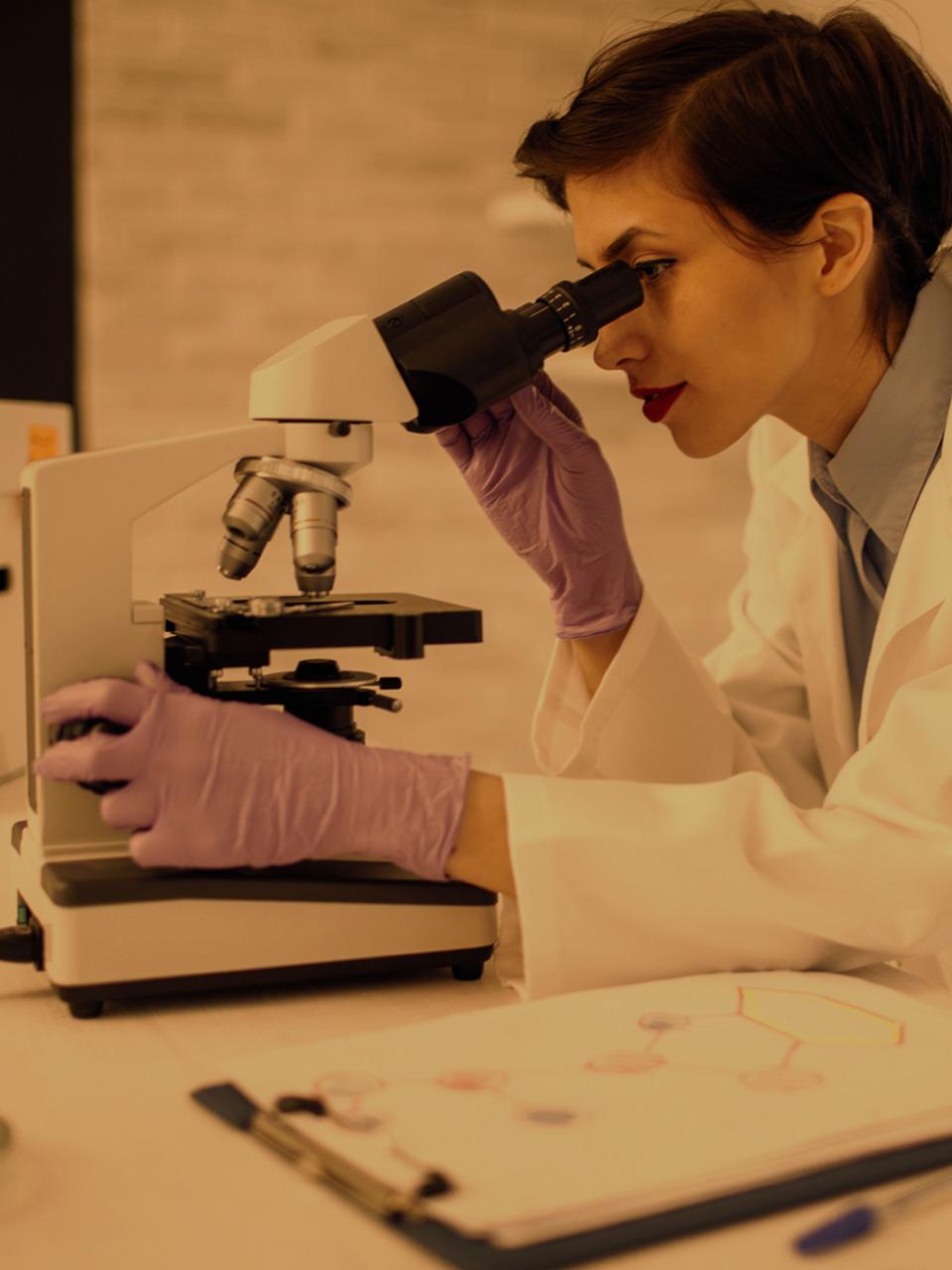
Tap to Read ➤
Biomedical Science Careers
Rahul Thadani


A biomedical scientist is someone who analyzes various blood and tissue samples of the human body with the help of advanced lab equipment, and then passes on the results to a doctor who then suggests a suitable course of remedy for a patient.

Biomedicine is a generic field of medicine that has several sub-categories within it. It basically involves solving medical issues with patients using the concepts of biology at the molecular level.

By transporting these concepts to clinical practices, it becomes easier to understand several ailments in patients and their possible solutions.

The best example is to analyze what happens to a blood sample when one undergoes a blood test. The process of studying the blood and locating any known ailments firmly falls under the category of biomedicine. Needless to say, it is a highly specialized field that requires in-depth knowledge, and this makes it a highly lucrative and high demand industry.

People who are looking to build a career in this field need to be adept and well versed with the various concepts of biology since this forms the basis of all the studies and practices. The field requires individuals to work in a laboratory for prolonged periods of time though, so this is something that one should be prepared for.

Just like the example of the blood test mentioned, there are many other practices that fall under biomedicine and they all involve carrying out scientific tests in a laboratory and studying the tissue structure and other factors in the sample that has been provided.
Biomedical Science Jobs

Once you have acquired the degree from a reputable and prestigious institution, you should be prepared for the kind of work that you will be expected to perform.

The following list is a brief job description and all this is something that you should be completely prepared for.
- To identify blood groups and blood stains and check their biological and chemical constituents.

- To check various other samples like tissue, urine, feces and cerebrospinal materials.
- To work with sophisticated computers and lab equipment and learn how to use them effectively.
- To communicate the test results to doctors and medical practitioners and suggest suitable remedies.
- To monitor the effects of various medications and see if they are effective and carry no side effects.
- To maintain accurate records about the various tests that are carried out.
- To try to develop new curative methods by carrying out various medical investigations.
- To uphold quality and hygiene procedures and to provide data for official studies and inquiries.
With these activities in mind, here are the various biomedical careers that one can pursue.
- Clinical Chemistry: Studies various bodily samples like stool and urine to check for traces of common ailments.
- Hematology: Involves dealing with blood samples and checking them for various infections.
- Histopathology: Deals with tissue samples extracted during surgical procedures to ensure that the surgery is suitable.
- Immunology: Deals with the strengthening immune system and to analyze what factors affect it.
- Microbiology: Involves the study of disease causing microorganisms and their effects on the body, and what antibodies are used against them.
- Transfusion Science: Deals with the transfusion of blood between people, and lays down the rules and guidelines for the same.
- Virology: Specializes in dealing with specific viral infections. Involves checking samples and determining the possible cures.
As you can see, biomedical science is a very generic term that involves several bodies of medicine that are made use of in many different avenues. The career choices for biomedical science experts revolve around hospitals and medical institutions, law enforcement agencies, educational institutions and the R&D centers of pharmaceutical companies.
People who specialize in this field require years of intense study and expertise, so they are paid very well when they finally get a job. The work involved would seem very boring and geeky to a layman, but the fact is that biomedical scientists are the people who keep the medical sector upright.
Without their contributions, there would be no medicines, no lab tests and no basis for diagnosis and prognosis of several diseases.
There are several Government funded health councils and blood councils that also look for biomedical scientists, so the demand is pretty high. Since this is a very elite field of medical practitioners, it represents a very fulfilling and lucrative career choice for people genuinely interested in medicine.